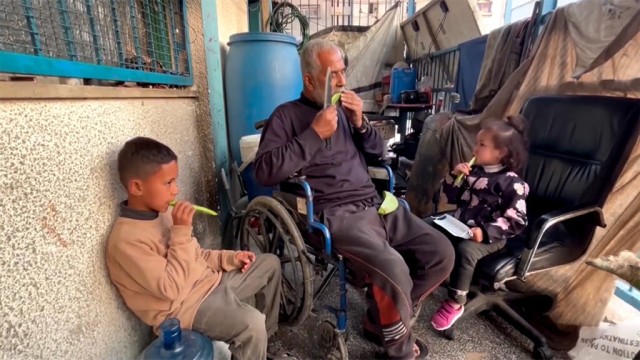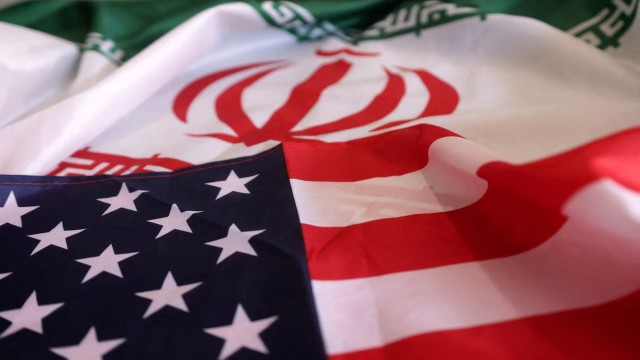Amid the devastation of war-torn Gaza, residents are facing a new and desperate battle for survival as they struggle to find food. With resources scarce and traditional sources of sustenance depleted, many Gazans are now turning to raw cactus as a last resort to stave off hunger.
For families like the Waddeya family, consisting of two children, the prickly cactus plant has become their meager source of sustenance. With no certainty of what the future holds, they endure each day grappling with hunger, their plight mirroring that of animals rather than humans.
The dire situation extends beyond individual families, encompassing the entire Gaza population, where people are forced to consume various types of vegetation in a bid to appease their gnawing hunger. However, these makeshift meals offer little in terms of nutritional value, leaving many malnourished and deprived of essential nutrients.
One member of the Waddeya family lamented the harsh reality of their existence, describing it as a "terrible famine" where even basic sustenance is scarce. With options dwindling, they resort to consuming the thorny cactus plant, including small children who are in dire need of nourishing foods like milk and eggs.
Another family member shared the heartbreaking struggle of caring for a newborn baby suffering from anemia due to the lack of adequate nutrition. With no relief in sight, they find themselves consuming cactus regularly to suppress hunger, unable to provide essential nourishment to their infant.
Once used for fencing due to its thorny nature, the cactus plant has now become a lifeline for many in Gaza, with residents collecting as much as they can in fear of its eventual scarcity. However, the tasteless plant offers little solace, serving as a stark reminder of the ongoing humanitarian crisis plaguing the region.
The famine in Gaza, exacerbated by the Israeli occupation and compounded by the recent halt in food supplies, has reached catastrophic levels. The United Nations Security Council has issued a dire warning, urging world leaders to intervene urgently to prevent the looming threat of mass starvation and avert further loss of life.































Comment: